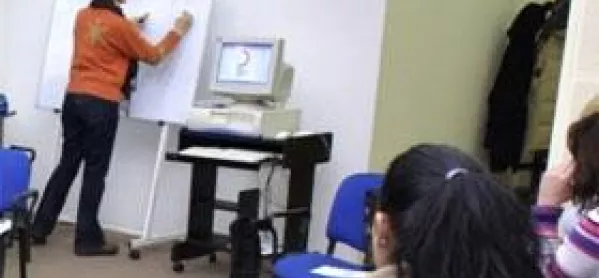‘What a nonsense’

“Immediate ministerial action” was called for after research exposed in TES Cymru last week revealed significant underinvestment in education since devolution compared with the rest of the UK - especially over the border in England.
David Reynolds, professor of education at Plymouth University, was commissioned to explore long standing complaints of underfunding in schools. He concludes children’s lives in Wales are blighted because the Assembly government has invested 6.4 per cent less in education since 2002-03 than the other home nations together.
But Jane Hutt says accusations children are suffering because of underfunding in schools are nonsense.
In an 800-word response this week, the education minister admits all heads would like more money. But she says local authority budgets in Wales have increased by an average of 6 per cent per year since 2002, almost twice the rate of inflation.
The minister also refuses to accept comparisons can be made with England after Professor Reynolds predicated a Pounds 500 per pupil advantage for a 950- pupil secondary school over the border, the biggest gap ever.
Professor Reynolds’ conclusions were backed up by a poll of 100 heads, 90 of who said that a lack of funding was having a negative impact on pupils’ education. Sixty-three per cent said lack of funding was the biggest issue facing their school.
Controversially, Prof Reynolds says there has been considerably higher investment in nation building and in the promotion of Welsh culture, media and sport since devolution. But Ms Hutt makes no comment on these figures - either to confirm or deny.
But there was overwhelming support for the research elsewhere, particularly among heads on the frontline. Shadow education minister Andrew Davies, AM, said ministerial action on the issue was “long overdue”.
“The Assembly Government has short-changed pupils, teachers and schools across Wales for far too long,” said Mr Davies.
Kirsty Williams, the Welsh Lib Dem spokesperson for education, said the findings prove the Assembly government “refuses to make education a priority”.
She called on the Assembly government to be “more savvy” with its finances and to “make sure that the quality and equality of a child’s education is the same across Wales.”
Most teaching unions said they were concerned but not necessarily surprised.
Iwan Guy, acting director of the National Association of Head Teachers Cymru, said the report confirmed what his union’s members have been reporting; that funding isn’t getting through to schools.
“Where money has been targeted directly then standards have risen,” said Mr Guy.
“If you have less to spend on staff it will have an impact.”
Gareth Jones, of head’s union ASCL Cymru, called the evidence “disturbing.”
He said: “The incontrovertible fact is that schools in Wales are being funded at levels that are wholly inadequate to fulfill the Assembly government’s policy agenda. Urgent action needs to be taken to overcome this barrier to progress.”
He said Wales is “some way off” from having consistent financial reporting that would increase the transparency of decision-making.
Rex Phillips, Wales organiser for NASUWT, said the Assembly government, local authorities and schools must work together to close the funding gap.
“We cannot continue to have a situation where children in Wales are being treated less favourably than those in England,” he said.
Dr Philip Dixon of the Association of Teachers and Lecturers Cymru called the findings “alarming”. “While it can be argued that we don’t need to spend the same amount as England, a 10 per cent funding gap is one that seems too large to be bridged by good will and more sensible policies,” he said. “It seems to be striking at the heart of the sector’s ability to deliver.”
Prof Reynolds also said local authorities in Wales now hold on to more cash for schools than six years ago, a finding also dismissed.
In a nine-page special last week, TES Cymru also detailed schools that are doing well against the financial odds, outperforming schools in England at GCSE, despite less funding. It also revealed widespread support for the Assembly government’s education policy and recognition that good teaching practice can go a long way towards bridging the funding gap.
Denying accusations by the Assembly government that his research was merely an attempt to run down Wales and its policy, Prof Reynolds said: “I have never, ever seen anything so self-justifying, malign and intellectually shoddy as the Welsh Assembly government’s responses to the figures I published last week on educational spending in Wales.”
David Evans, secretary of the National Union of Teachers’ Cymru, said action was urgently needed to raise funding levels in schools. He welcomed the research but said there was not just inequalities between funding in Wales and England, but within Wales and its 22 local authorities.
Jane Hutt responds, pages 6-7
Why Wales and England cannot be compared, page 41
Leading article, page 40.
Keep reading for just £1 per month
You've reached your limit of free articles this month. Subscribe for £1 per month for three months and get:
- Unlimited access to all Tes magazine content
- Exclusive subscriber-only stories
- Award-winning email newsletters


